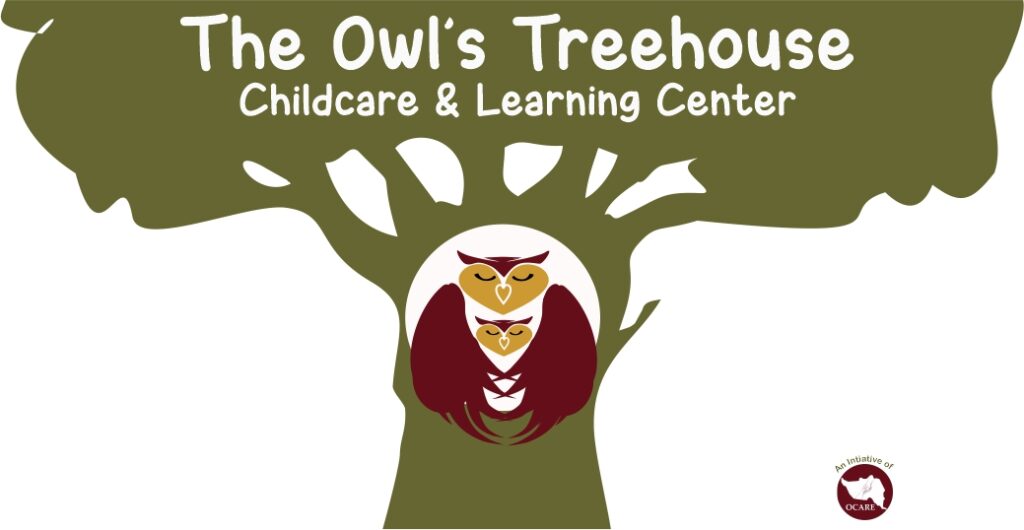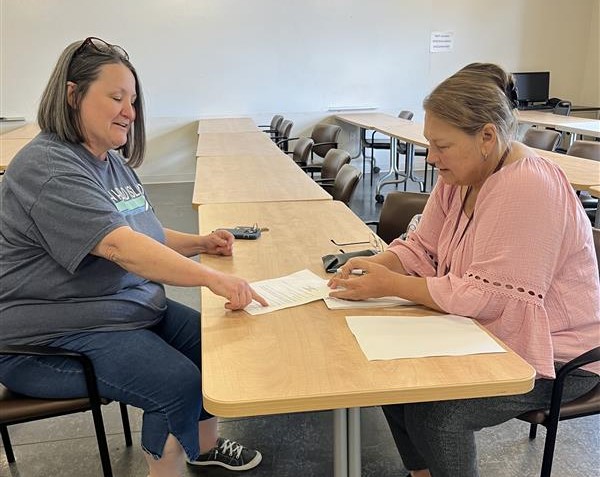In Eastern Kentucky, accessing high quality childcare presents unique challenges for parents and caregivers. Childcare is a fundamental building block of a thriving community so parents can participate in the workforce and improve their family’s quality of life. To fully realize the resilient economy Mountain Association envisions for Eastern Kentucky, there must be access for families and resources for childcare providers.
We put our daughter on multiple waitlists for daycare centers the week she was born, as we were told she couldn’t join the list beforehand. She “came off” the waitlist when a spot became available for her at one facility six months later. We were lucky to have family members who could help watch our daughter during the workday in the meantime, as my husband and I both work full time. It was a group effort between her staying home with me, while I was working remotely full time, my husband’s mom, who was also working from home, and my grandmother. We had to coordinate care for her daily that accommodated work meetings and other appointments. This was a major stressor for us. It was a constant pull between being a “good mom” and a “good employee,” while trying my hardest to do both well.
– Hannah Hall, parent in Hazard
Research shows the benefits of high quality early care and education lasting into kindergarten and some studies find the impact extends all the way to high school. These benefits include cognitive benefits that prepare children for lasting success and academic achievement in school as well as improved social development and reduced behavior issues. This same research tells us that high quality early childcare is especially beneficial to children from low-income families.
Those seeking childcare in the region have multiple factors stacked against them from the start, including:
- Low-income families paying for childcare spend almost $200 per week on care, amounting to about 35 percent of their household income.
- 70% of people in rural Appalachia live in a childcare desert.
- Rural parents are significantly more likely than urban/suburban parents to have to drive more than 10 miles to access childcare. Most urban/suburban parents drive less than 5 miles.
We have families who have decided because of changes in their family situation, that they have to go to work but they can’t find childcare.
– Becky Stacy, Executive Director of Appalachian Early Childhood Network
All these issues create a fundamentally unsustainable environment for parents, especially Eastern Kentuckians with the lowest incomes. At the same time parents are struggling to find care, childcare providers are constantly facing old and new challenges.
Some of the realities caregivers face include:
- The childcare business model has been historically unsustainable.
- Childcare costs have been growing rapidly; wages for childcare workers remain low. The national median pay for a childcare worker in 2022 was still under $30,000 per year.
- Even when paying childcare employees low wages, the average childcare provider in Kentucky is losing money.
- Funding available through grants and subsidies is limited and competitive.
These factors culminate in an environment where starting or maintaining a childcare center in Eastern Kentucky takes not only smart business planning but sheer luck that everything else goes your way. When you’re caring for children and trying to provide for your family, it’s not a gamble many are able or willing to take.
Addressing these issues requires urgent investment by local Community Development Financial Institutions, like Mountain Association, and other community investors, but also policy action by the Kentucky Legislature. As sources of Federal funding put into place during the pandemic continue to expire, such as the annual $330 million boost from the American Rescue Plan Act, it’s crucial Kentucky continues to invest in the families that make up its workforce. Investments in accessible childcare services and support for those who provide them will go a long way towards a brighter, more resilient future for Eastern Kentucky’s families.
Mountain Association’s role

Oftentimes childcare center startups are labors of love and intense planning and advocacy. No one knows this more than the team at OCARE in Owsley County, who this winter will proudly open a new childcare facility, located in one of Eastern Kentucky’s many childcare deserts. According to the Bipartisan Policy Center, over 45% of childcare facilities in Kentucky have closed over the past 10 years. By investing in new childcare facilities like OCARE’s Owl’s Treehouse, the Mountain Association is committed to learning alongside these organizations and businesses as they navigate the complexities of launching in a rural region where access to early childcare education has long been limited. Through low-interest financing and targeted technical assistance our team worked with OCARE to build a foundation for their successful launch and sustainable future.

Lending to childcare centers is often seen as risky and unwise by traditional financial institutions. The margins for childcare are notoriously thin largely due to high staffing requirements, strict regulatory, safety, and health standards that increase operational costs, and a limited revenue model. Childcare centers operate on a narrow revenue model where their primary – if not only source of income – is parent fees. However, with childcare being essential yet expensive, centers in our region face pressure to keep tuition affordable. This puts centers in the difficult position of trying to bridge funding gaps while also meeting high operational costs (oh, and actually caring for the children!).
As many childcare centers in our region are nonprofits, we identified the need for specialized financial planning support for the team at Owl’s Treehouse. Through Mountain Association’s Business Support program, OCARE worked with Angie LeBlanc of XP UP Consulting to streamline financial operations – simplifying bookkeeping, grant management, and reporting. Together, we guided them through essential steps like establishing separate bank accounts for financial clarity, implementing clear financial reporting for their various entities, and identifying potential funding sources specifically for after-school programs. As this was the first time OCARE took on debt as a nonprofit organization, their training included practical strategies for debt management to ease the uncertainties.
Through this partnership we’ve gained invaluable insights into the needs of emerging childcare facilities in rural Kentucky, enabling us to better tailor our loan products and support services to meet these challenges and further support accessible, community-centered childcare across the mountains we love so much.





